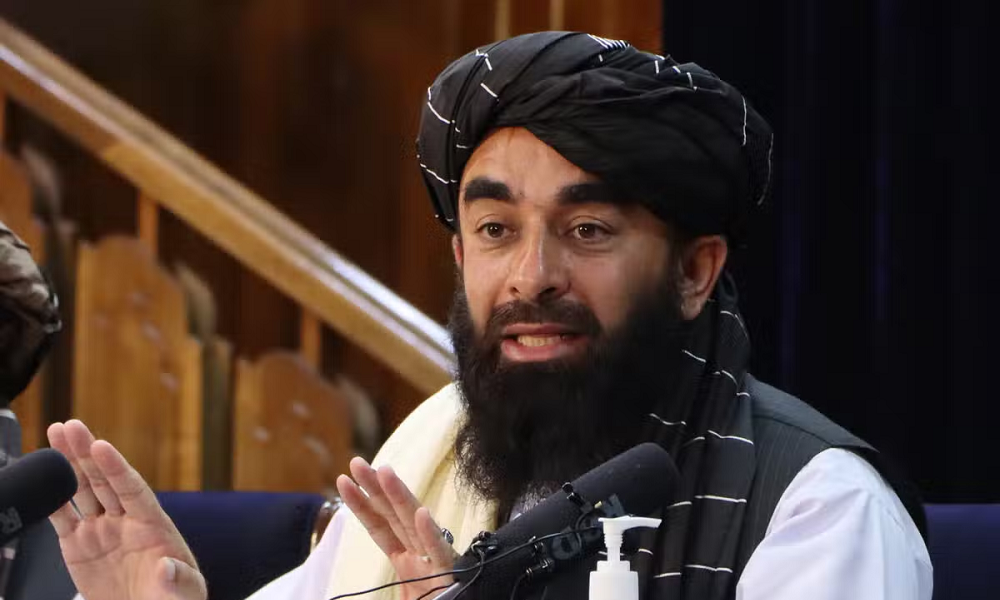Taliban reject accusations of involvement in attacks in Pakistan:
A Taleban spokesman rejects Pakistan’s claim. Although Taleban Supreme Leader Hibatullah Akhundzada has called cross-border attacks "haram", prohibited, Pakistani security forces are still targeted. Meanwhile, the Islamic State-Khorasan continues to strike, creating a situation that appears to have gone out of control.
Islamabad (AsiaNews) – The Taliban have again rejected Pakistan’s accusation that Afghan nationals are involved in cross-border terrorist attacks, stressing that Afghanistan is not responsible for the lack of regional security, this according to Islamic Emirate of Afghanistan spokesman Zabiullah Mujahid.
The row between the two countries follows two armed attacks by Afghan militants in July, in Pakistan’s southwestern province of Balochistan that left at least 12 Pakistani soldiers dead. Last week, the Pakistani affiliate of the Afghanistan-based Islamic State-Khorasan (IS-K) claimed responsibility for a suicide attack against a political rally in Khyber Pakhtunkhwa province’s Bajaur district.
Pakistan’s Chief of Army Staff General Asim Munir said that his country “will spare no effort to dismantle terrorist networks and protect its citizens at all costs.” He also expressed concern about the leeway and protection the Pakistani Taliban (Tehreek-i-Taliban Pakistan, TTP) enjoys in Afghanistan.
For Pakistani Human Rights Minister Riaz Pirzada, tensions between the two countries are due to misunderstandings. In his view, Taliban authorities were unaware of the terrorist attacks in question and that they are committed to stopping cross-border attacks.
Taliban Supreme Leader Hibatullah Akhundzada waded into the issue, calling cross-border attacks, including those in Pakistan, as "haram”, prohibited.
In a audio recording aired on the official Afghan television station, Taliban Defense Minister Muhammad Yaqoob mentioned Hibatullah’s order on cross-border violence.
For 20 years, the Taliban have called the fight against the "occupation" of Afghanistan by the United States and NATO forces a "jihad." The end of this jihad came in August 2021 when US troops pulled out and the Taliban seized power again.
Since then, the authorities in both Afghan and Pakistani have lost control of the situation as a wave of armed attacks across the region was unleashed.
In Pakistan, attacks are up by 73 per cent in the last two years, mostly by the TTP, a group separate from their Afghan "cousins" but whose aim is to set an Islamic emirate in Pakistan.
This is why it targets government institutions, officials, and military. This year alone, more than 450 people have died in terror-related violence. Pakistan’s military also confirmed the deaths of more than 120 officers and soldiers in the first seven months of 2023.
For its part, IS-K has intensified its attacks in Afghanistan, targeting civilians and the Taliban government, which it considers ideologically too moderate.
in its latest attack in Pakistan, it targeted a political rally by the Jamiat Ulema-e-Islam-Fazl (JUI-F), an Islamist party that supports the Taliban in Afghanistan, but, at the same time, takes part in Pakistani elections, despite its hard-line religious and social views. The party’s leader, Fazlur Rehman, is a supporter of the ruling coalition in Islamabad.
So far, Pakistan's efforts to restore order have failed. Last year it was unable to get the TTP to sign a truce, while the army conducted limited military operations on the border between the two countries.
Even the construction of a border barrier has not led to the desired effects, nor has Pakistan’s proposal to the Taliban to transfer thousands of TTP fighters in Afghanistan away from the unstable border region.
12/10/2021 16:11
24/09/2021 15:51
06/10/2021 14:14







.png)










